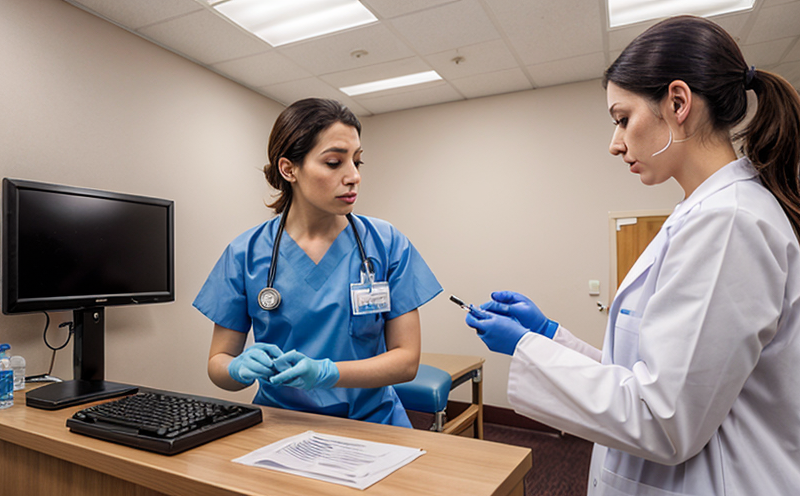Veterinary Drug Mutagenicity Testing in Preclinical Studies
Understanding the safety profile of veterinary drugs is critical to ensuring public health and animal welfare. Mutagenicity testing plays a crucial role in this process by assessing whether a substance can cause genetic damage, which could lead to carcinogenicity or other harmful effects if used in animals.
In preclinical studies, mutagenicity tests are conducted on compounds that will be evaluated for use as veterinary drugs. These tests help identify potential risks before the drug reaches clinical trials and eventual market release. The testing process involves exposing cells to the substance under controlled conditions, then observing any changes in their genetic material.
The primary goal of this testing is to evaluate the safety profile of new veterinary drugs by identifying potential genotoxic effects early on. This ensures that only safe compounds proceed further into development and ultimately reach the market. By doing so, we contribute to reducing the incidence of adverse reactions and improving overall animal health.
For effective mutagenicity testing in preclinical studies, it is essential to follow internationally recognized standards such as OECD Guideline 487 (Bacterial Reverse Mutation Assay). This ensures consistency across different laboratories worldwide. Compliance with these guidelines also helps maintain regulatory approval processes and facilitates international trade.
Our laboratory provides comprehensive veterinary drug mutagenicity testing services tailored specifically for preclinical studies. Our experienced team uses state-of-the-art facilities equipped with advanced analytical instruments to ensure accurate results every time. We offer rapid turnaround times while maintaining high standards of quality control throughout the entire process.
The benefits of our service extend beyond mere compliance; they include enhanced product safety, reduced development costs due to early identification of issues, and improved reputation among stakeholders. Our expertise allows us to provide valuable insights into potential risks associated with each compound tested, helping our clients make informed decisions about their products.
Industry Applications
| Application Area | Description |
|---|---|
| Veterinary Drug Development: | Identifying potential genotoxic risks during early stages of drug discovery. |
| Animal Health Research: | Evaluating the safety profile of novel compounds for use in veterinary medicine. |
| Regulatory Compliance: | Satisfying international regulatory requirements for new drug approvals. |
- Aids in the identification of compounds that may pose genotoxic risks to animals.
- Supports the development of safer veterinary drugs by eliminating potentially harmful substances early on.
- Facilitates compliance with international regulatory standards, ensuring products meet rigorous safety criteria.
International Acceptance and Recognition
The International Council for Harmonisation of Technical Requirements for Pharmaceuticals for Human Use (ICH) has recognized mutagenicity testing as an important part of ensuring drug safety. Organizations like the United States Food and Drug Administration (FDA), European Medicines Agency (EMA), and other regulatory bodies worldwide have incorporated OECD Guideline 487 into their guidelines.
- Adherence to OECD Guidelines ensures that our results are accepted by various international regulatory authorities.
- The use of state-of-the-art equipment and methods guarantees accurate data collection, which is crucial for obtaining approval from these agencies.
Competitive Advantage and Market Impact
By offering robust veterinary drug mutagenicity testing services in preclinical studies, our laboratory provides a significant competitive edge. Early detection of potential genotoxic risks allows clients to refine their product development strategies effectively.
This not only enhances the safety profile but also reduces costs associated with late-stage failures or recalls. Additionally, it strengthens brand reputation by demonstrating commitment to high standards of quality and ethical practices in animal healthcare.
Our expertise contributes positively towards maintaining market leadership through continuous innovation and adherence to stringent regulatory requirements. This helps ensure that only safe and effective veterinary drugs enter the marketplace, ultimately benefiting both consumers and animals alike.





